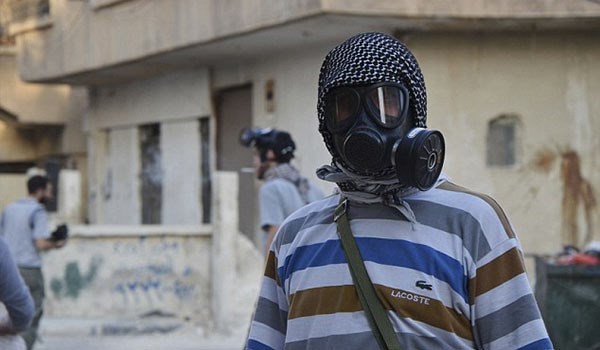
RNA - The Russian Defense Ministry’s Spokesman Major General Igor Konashenkov made the announcement on Tuesday, just after the United States and its allies rushed to accuse Syrian government forces of carrying out “a chemical attack” in the province earlier in the day.
A militant medical authority had put the death toll from the blast at more than 100, with hundreds more injured. The UK-based so-called Syrian Observatory for Human Rights, however, gave a tally of 72, including 20 children, saying, “The death toll could rise further because there are people missing.”
Konashenkov added that the same chemical munitions had already been used by militants in the northwestern Syrian city of Aleppo, where Russian military experts took samples in late 2016.
Moscow has already announced that it would continue its military operations in Syria in support of the Damascus government.
The Syrian army has roundly denied using “any chemical or toxic material” in the town, adding that it “has not used nor will use in any place or time, neither in past or in future.”
Syria’s Foreign Ministry also issued a separate statement on Tuesday, strongly denying the use of poisonous gas in Khan Shaykhun or any other Syrian city or village by the country’s military and emphasizing that the Syrian Arab army did not possess any form of chemical weapons.
The Syrian government turned over its entire chemical stockpile under a deal negotiated by Russia and the United States back in 2013. The United Nations Organization for the Prohibition of Chemical Weapons has overseen operations to remove the government chemical arsenal from Syria.
Meanwhile, Britain, France and the United States have presented a draft resolution to the UN Security Council, condemning “the suspected chemical attack” and demanding a full investigation.
Last November, the Russian military’s chemical warfare defense unit carried out two bouts of search operations in Aleppo. It found unexploded shells containing traces of mustard gas during the first mission, and similar live ammunition holding chlorine and white phosphorus in the second.
Speaking to Press TV, political commentator and former US Army officer Scott Bennett offered his take on the Western accusations against Damascus.
“They have tried in the past to stop the Syrian success, stop [Syrian President] Bashar al-Assad. They have played the chemical card before and it has come out that the chemical weapons did not belong to Syria, did not belong to President Assad, did not belong to the Russians,” he said.
“In fact, they were engineered, manufactured and transported by Turkey, Saudi Arabia, Qatar…,” Bennet noted, referring to some of the countries, which stand accused of providing political, military and financial support to anti-government militants in Syria since 2011 in an effort to oust Assad.
847/940